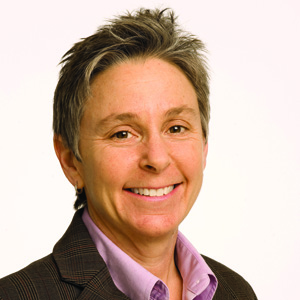 To segregate or not to segregate, that is the question. When it comes to best meeting the needs of LGBTQ youth, answering this question elicits a range of opinions, approaches and philosophies. Across this country there are outstanding examples of service organizations that were founded specifically, and exclusively, to meet the needs of LGBTQ youth — to fill gaps that exist in our service system and to save the lives of some of our most marginalized community members. This phenomenon started in the late 1970s and has since become a very successful model for serving LGBTQ youth: to create something separate, by and for the LGBTQ community. In this last decade, however, we have seen a very welcome trend of so-called traditional youth-serving organizations stretching themselves to become LGBTQ-inclusive, to intentionally integrate and include LGBTQ youth into their services and programs, and to offer supplemental support groups or expertise to meet the specific needs of LGBTQ youth.
To segregate or not to segregate, that is the question. When it comes to best meeting the needs of LGBTQ youth, answering this question elicits a range of opinions, approaches and philosophies. Across this country there are outstanding examples of service organizations that were founded specifically, and exclusively, to meet the needs of LGBTQ youth — to fill gaps that exist in our service system and to save the lives of some of our most marginalized community members. This phenomenon started in the late 1970s and has since become a very successful model for serving LGBTQ youth: to create something separate, by and for the LGBTQ community. In this last decade, however, we have seen a very welcome trend of so-called traditional youth-serving organizations stretching themselves to become LGBTQ-inclusive, to intentionally integrate and include LGBTQ youth into their services and programs, and to offer supplemental support groups or expertise to meet the specific needs of LGBTQ youth.
The Human Rights Campaign’s (HRC) 2012 groundbreaking survey of more than 10,000 self-identified LGBTQ youth shed light on some of the unique challenges these teens face, from lack of family and peer support to limited participation in after-school and community activities. We know from many other studies and from too many real-life stories that LGBTQ youth are at high risk for homelessness, substance abuse, depression and suicidal ideation as well — not because they are lesbian, gay, bisexual, transgender or questioning, but as a response to family rejection, societal stigma and legal discrimination.
So, it’s no wonder that we’ve had to launch programs and services just for LGBTQ youth. They are not being served well in many mainstream youth-service organizations and often don’t have adults to support them and advocate for them. Far too many LGBTQ youth have shared stories about how the very adults who have the job of helping them — parents, counselors, coaches, teachers — have instead hurt them through rejection, humiliation, blame and neglect.
But segregating LGBTQ youth from their peers is not getting to the root of the problem, nor is it changing the future landscape for the next generation of LGBTQ teens. It’s a short-term solution, an interim plan that is absolutely necessary right now for ensuring safety and well-being, but not ideal or sustainable for the long haul.
First, there are millions of LGBTQ youth across this country who simply do not have access to LGBTQ-specific service providers, and they must rely on the service providers in their community for the help and support they need. Second, we continue to let our mainstream providers off the hook when we set up shop for LGBTQ youth. Instead, we should mandate that all youth-serving organizations establish LGBTQ non-discrimination policies and provide the cultural competency training and tools so that staff can do their best. Thirdly, we send the false message that non-LGBTQ youth can’t or won’t accept their LGBTQ peers, and we fail to prepare all young people for living in an increasingly diverse world. Will they segregate the LGBTQ employees at Starbucks or Target? No it’s about learning to respect one another and co-exist in the larger community. Finally, LGBTQ youth need and want to benefit from the full range of youth-service organizations and programs in their own communities — this is about access and fairness. And frankly, youth-serving professionals should have the benefit of really knowing LGBTQ young people, seeing their unique talents and gifts, their resilience and optimism, and better understanding the unique perspectives and life experiences that shape them. LGBTQ youth are great teachers, and can help us become better providers. Let’s embrace a long-term strategy of creating the kind of welcoming, inclusive and supportive organizations that will best serve LGBTQ youth — and all youth, in our communities.
Ellen Kahn is the director of The Child, Youth and Families Program at the Human Rights Campaign, the nation’s largest civil rights organization working toward full equality for lesbian, gay, bisexual and transgender Americans. In her role, Ms. Kahn develops practice improvement programs and training resources to improve outcomes for LGBTQ youth and LGBT-led families in education, healthcare, child welfare and social services.
























